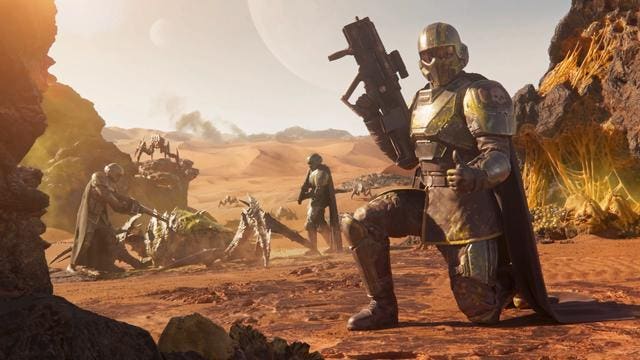The ongoing debate about the inclusion of diversity, equity, and inclusion (DEI) initiatives in video games continues to permeate the industry, sparking discussions and disagreements among developers, players, and critics alike. The recent exchange between Johan Pilestedt, the creative director of Helldivers 2, and a user on Twitter exemplifies the complexities of these conversations and the varying perspectives on the role of social and political commentary in interactive entertainment. The core of the debate revolves around the balance between creating compelling gameplay experiences and incorporating broader social themes, a balancing act that developers often struggle to achieve without alienating segments of their audience.
The discourse surrounding Helldivers 2 offers a microcosm of the larger DEI debate. Initially lauded by some as a refreshingly “non-woke” game focused solely on military action against alien adversaries, the game’s underlying themes of xenophobia and government propaganda, reminiscent of its source material, Starship Troopers, were subsequently highlighted by others. This duality of interpretation reveals the inherent subjectivity in labeling games as politically charged or neutral. While some might interpret the game’s core narrative as a critique of blind patriotism and fear-mongering, others may choose to focus on the surface-level action and disregard any deeper social commentary. Pilestedt’s own comments on the matter seem to suggest a preference for prioritizing gameplay over explicit political messaging, while simultaneously acknowledging the inherent presence of political undertones within the game’s narrative framework.
The conversation about DEI in games often devolves into a semantic tangle, with differing interpretations of what constitutes a “political statement” versus a broader “political theme.” While Pilestedt seemingly advocates for avoiding overt contemporary political statements, Helldivers 2 arguably engages with political themes through its portrayal of xenophobia and the manipulation of public perception by governing bodies. This subtle distinction raises the question of whether any game, regardless of its setting or subject matter, can truly be divorced from the socio-political context in which it is created and consumed. The very act of choosing a narrative, designing characters, and establishing world-building parameters inevitably reflects the creators’ values and perspectives, adding layers of meaning that players can interpret in a multitude of ways.
The argument against incorporating DEI elements into games often centers on the notion that games should be primarily about entertainment and escapism, free from the burdens of real-world social and political issues. This perspective suggests that introducing such elements can detract from the core gameplay experience, turning enjoyable leisure activities into platforms for ideological messaging. Conversely, proponents of DEI argue that games, as a powerful form of media, have a responsibility to reflect and engage with the complexities of the real world, promoting inclusivity and challenging harmful stereotypes. They contend that games can be both entertaining and thought-provoking, offering players opportunities to explore diverse perspectives and engage with critical social issues in a safe and interactive environment.
The Helldivers 2 case also highlights the difficulty in defining and implementing DEI in practice. While the game features both male and female soldiers, the uniformity of their armored appearances minimizes any perceived diversity. This raises the question of whether mere representation is sufficient or if deeper considerations of character development, backstory, and narrative agency are necessary to achieve meaningful inclusion. The lack of explicit commentary on racial or LGBTQ+ issues in Helldivers 2 further complicates the matter, prompting the question of whether DEI should encompass a broad range of social identities or focus primarily on specific underrepresented groups. The ongoing evolution of societal values and the fluidity of identity further complicate the task of defining and implementing DEI in a way that resonates with diverse audiences.
Ultimately, the debate surrounding DEI in video games reflects a broader societal struggle to reconcile competing values and find common ground in a polarized landscape. While some advocate for a strict separation between entertainment and social commentary, others see games as a powerful tool for promoting positive change and fostering greater understanding. As the industry continues to evolve, developers must grapple with these complex issues, striving to create games that are both entertaining and engaging, while also being mindful of the potential impact their creations can have on players and the wider cultural discourse. The success of Helldivers 2, despite or perhaps because of its inherent ambiguities, demonstrates that there is room for a variety of approaches and that players are receptive to games that challenge them to think critically, even within the context of a primarily action-oriented experience.



